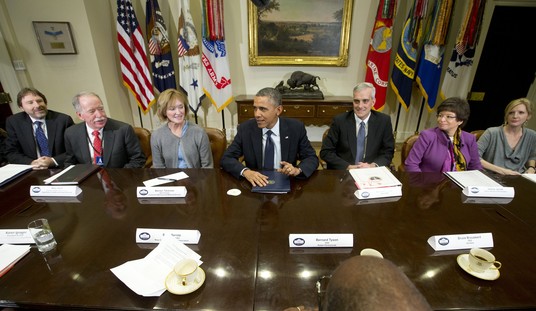I've just discovered that the State Department now has a Substack, where policymakers explain their reasoning behind US policy.
Some of the content is exactly what you would expect: statements from top officials like Marco Rubio that one could find elsewhere easily.
But a new essay dropped yesterday that was something else entirely. Rather than being the PR slop or prepared statements from top officials, it reads like a manifesto outlining America's vision of freedom and the challenges we face dealing with a Europe that has been retreating from liberalism.
 The essay is remarkable, as much for the fact that the State Department would publish it at all as an official document as for its clarity in articulating the Trump administration's belief that Europe is giving up on Western Civilization itself.
The essay is remarkable, as much for the fact that the State Department would publish it at all as an official document as for its clarity in articulating the Trump administration's belief that Europe is giving up on Western Civilization itself.
How often do you see such blunt talk from diplomats?
Our transatlantic partnership is underpinned by a rich Western tradition of natural law, virtue ethics, and national sovereignty. This tradition flows from Athens and Rome, through medieval Christianity, to English common law, and ultimately into America's founding documents. The Declaration's revolutionary assertion that men “are endowed by their Creator with certain unalienable rights” echoes the thought of Aristotle, Thomas Aquinas, and other European heavyweights who recognized that all men possess natural rights that no government can arbitrate or deny. America remains indebted to Europe for this intellectual and cultural legacy.
This connection between Europe and the United States is also the reason we speak honestly when we disagree or have concerns—and is why the Trump Administration is sounding the alarm in Europe. When Vice President Vance addressed this year’s Munich Security Conference, he made the reason clear, stating: “What I worry about is the threat from within, the retreat of Europe from some of its most fundamental values—values shared with the United States of America.”
J.D. Vance, of course, has been blunt enough about the problems we have with Europe's retreat from Western liberalism, and even Donald Trump has brought the issue up.
But it's hard to imagine that any other administration's State Department would publish a long essay about how Europe is becoming authoritarian.
In the aftermath of two devastating world wars, European nations sought to prevent future catastrophes by creating supranational structures that would bind nations closer together and allow for more substantial diplomatic and economic engagements. Proponents of this new order, including well-meaning Christian and pro-democracy parties, sought a grand transformation—a world that would transcend the divisiveness of nationality and creed to usher in an era of unprecedented peace. By overcoming the anchors of nationhood, culture, and tradition, global liberalism promised what Francis Fukuyama famously called the “end of history,” the ultimate innovation of political life.
Today, this promise lies in tatters. What endures instead is an aggressive campaign against Western civilization itself. Across Europe, governments have weaponized political institutions against their own citizens and against our shared heritage. Far from strengthening democratic principles, Europe has devolved into a hotbed of digital censorship, mass migration, restrictions on religious freedom, and numerous other assaults on democratic self-governance.
These concerning trends have only increased in recent years. In the United Kingdom, police are arresting Christians—such as Adam Smith-Connor and Livia Tossici-Bolt—for silently praying outside of abortion clinics. In 2023, over 12,000 British citizens were arrested for online posts, including comments critical of Europe’s migration crisis, that authorities deemed to be “grossly offensive.”
In Germany, the government has established elaborate systems to monitor and censor online speech under the guise of combating disinformation and preventing offense. When German citizens express legitimate concerns about the economic and social impacts of globalization or criticize politicians, they risk being fined, labeled as radicals, or even having their homes raided by law enforcement. The European Union’s Digital Services Act, billed to protect children from harmful online content, is instead used to silence dissident voices through Orwellian content moderation. Independent regulators now police social media companies, including prominent American platforms like X, and threaten immense fines for non-compliance with their strict speech regulations.
I can't imagine that Ursula von der Leyen or Keir Starmer will read this with pleasure. Europeans have an annoying tendency to look down on America. We are ignorant, uncouth, and have no sense of history. The proper relationship between the trans-Atlantic allies is for Europe to set the moral tone and for America to pay up and bring the muscle.
During the Cold War, American presidents of both parties were less tolerant of this attitude than in recent years. And Europe, while resenting American bullying and muttering about "Ugly Americans," understood that they were the weaker partner.
But with the fall of the Soviet Union and the rise of the European Union, European leaders have become complacent and have been more openly contemptuous of America. The rise of the Davos/World Economic Forum transnational movement really took off over the past decade and a half, and the European Union began flexing its cultural muscle.
Liberals in America have always loved the idea of transnationalism, going back to Wilson's push for a League of Nations and the establishment of the United Nations post World War II. But Cold War liberalism--at least until the latter years of the Vietnam War--assumed US leadership. Starting with John Kerry's tenure as Secretary of State, this attitude transformed into implicit anti-Americanism.
Biden's foreign policy was, effectively, subservient to the transnationalist impulse to deprecate US values and power and elevate the EU-style of governance. The US encouraged the retreat from freedom and Western values, collaborated with the growing censorship regime, and worked to cede US policymaking to organizations like the World Health Organization.
But the rise of MAGA has reversed this deference to international institutions, especially the European Union, and this essay articulates a bold vision for leading our Western allies back to liberal values.
This environment also restricts Europe’s elections. As recently highlighted by Secretary Rubio, the popular Alternative für Deutschland party was just labeled an “extremist” organization by German intelligence, which could lead to the party’s exclusion from the electoral process. Leading French presidential candidate Marine LePen was charged with embezzlement and, departing from standard procedure, immediately banned from running. Restrictions have likewise occurred in Poland and Romania against select political parties or politicians. Simultaneously, Christian nations like Hungary are unjustly labeled as authoritarians and human rights abusers.
Americans are familiar with these tactics. Indeed, a similar strategy of censorship, demonization, and bureaucratic weaponization was utilized against President Trump and his supporters. What this reveals is that the global liberal project is not enabling the flourishing of democracy. Rather, it is trampling democracy, and Western heritage along with it, in the name of a decadent governing class afraid of its own people.
Our concerns are not partisan but principled. The suppression of speech, facilitation of mass migration, targeting of religious expression, and undermining of electoral choice threatens the very foundation of the transatlantic partnership. A Europe that replaces its spiritual and cultural roots, that treats traditional values as dangerous relics, and that centralizes power in unaccountable institutions is a Europe less capable of standing firm against external threats and internal decay. To this end, achieving peace in Europe and around the world requires not a rejection of our shared cultural heritage, but a renewal of it.
Both Trump and Vance have articulated their concerns, but this essay lays out a vision and serves as a clarion call to save Western Civilization. And Marco Rubio is backing up the rhetoric with real action. He has just announced foreigners who have worked against the First Amendment rights of Americans will be denied entry into the United States--a remarkable move.
Foreigners who work to undermine the rights of Americans should not enjoy the privilege of traveling to our country. Whether in Latin America, Europe, or elsewhere, the days of passive treatment for those who work to undermine the rights of Americans are over.
— Secretary Marco Rubio (@SecRubio) May 28, 2025
If it were just an essay, it would be a superb one. But it is more than that: it is an official State Department document, telling our European allies that the trans-Atlantic partnership is based on shared values as much as shared interests. And the corollary is that if the values are no longer shared, the alliance itself is at risk.
That's a big deal. It's the clearest statement yet that America's commitment to Europe depends at least partly on Europe's commitment to freedom and our shared culture.








